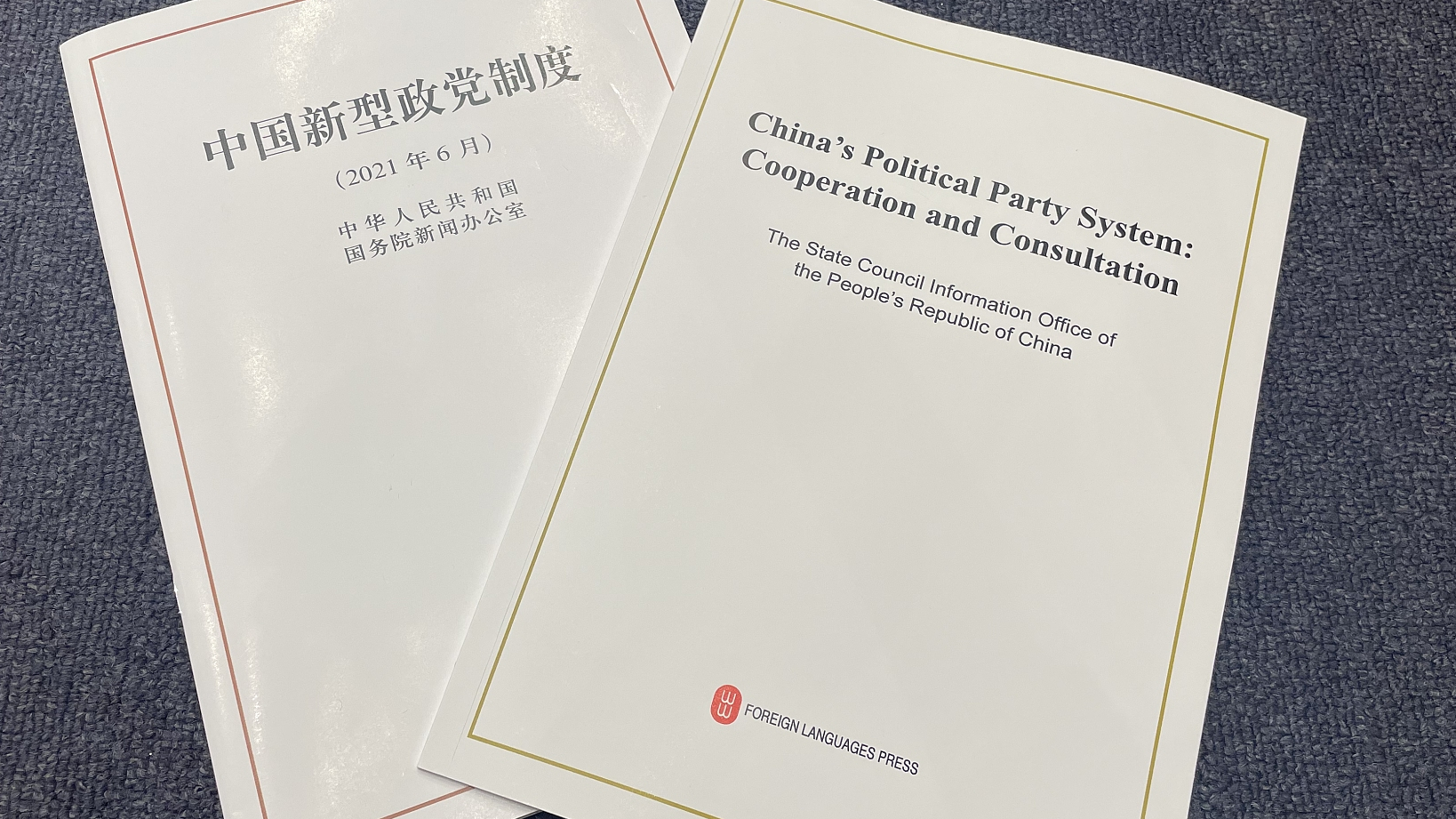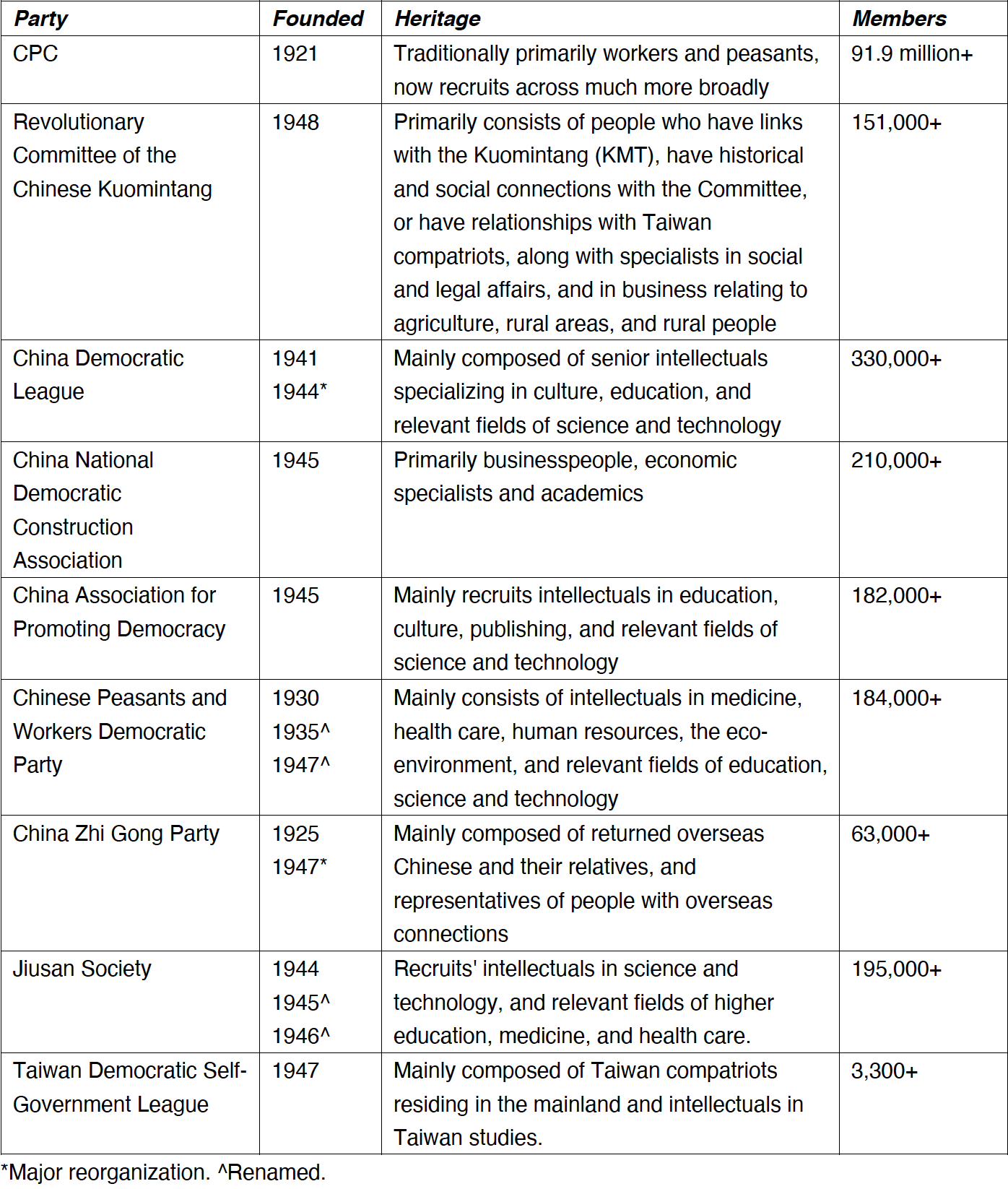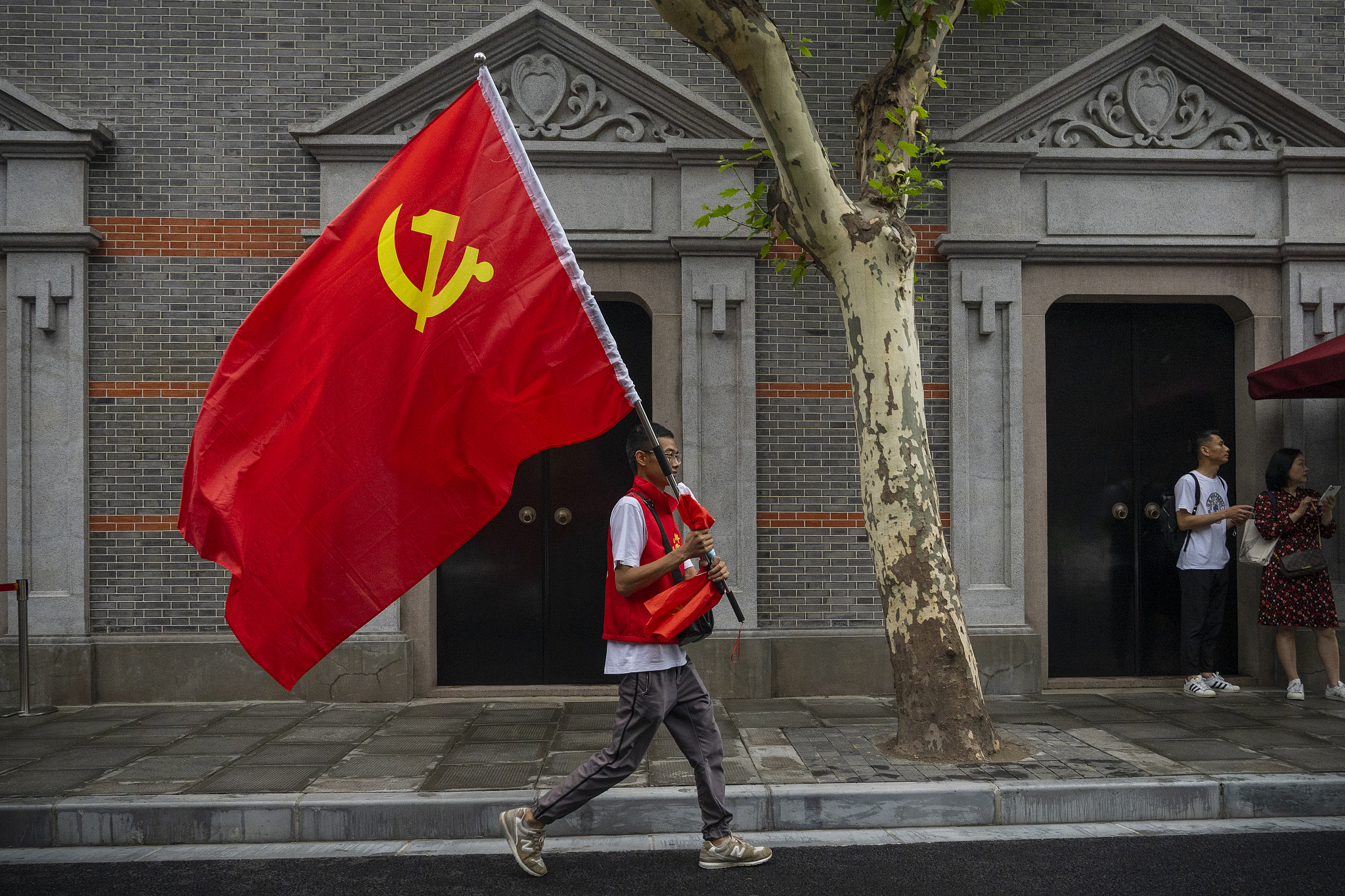
Photo of China's new white paper on its political system. /CFP
Photo of China's new white paper on its political system. /CFP
Editor's note: Josef Gregory Mahoney is a professor of politics at East China Normal University. The article reflects the author's opinions and not necessarily the views of CGTN.
China's State Council Information Office has released a new white paper titled "China's Political Party System: Cooperation and Consultation", explaining how the Chinese political system functions through a united front of multiparty cooperation and consultation. It provides new information on party memberships and advances made especially since the 18th CPC National Congress in 2012, with special attention on the role of the Chinese People's Political Consultative Congress (CPPCC).
Altogether, including the Communist Party of China (CPC), there are nine parties in the united front. The following table reflects the data and descriptions the paper provides:

With respect to the role the eight non-CPC political parties play vis-à-vis the CPC, the white paper contains two key passages.
First:
"The CPC is in a leading and ruling position. The other political parties and non-affiliates accept the leadership of the CPC and support its ruling status. The CPC exercises leadership over them through political guidance, mainly on political principles, direction, and major policies. It supports other political parties and non-affiliates in independently carrying out their work and performing their functions and duties. Upholding the leadership of the CPC is a distinctive feature and an important part of China's political party system."
And second:
"Non-CPC political parties participate in state governance under socialism with Chinese characteristics. They are not in opposition, nor are they bystanders or outsiders. Instead, they participate in state governance under the leadership of the CPC. Their status and their right to participate in the administration of state affairs are protected by the Constitution, which is an important manifestation of people's democracy. They offer their advice and invest effort on major issues concerning China's economic and social development, and they have witnessed, practiced, upheld and defended the cause of Chinese socialism."
Additional passages highlight the friendship and support the parties have for each other, how they supervise each other, and how they agree on both the historical mission of national renewal and constructing socialism with Chinese characteristics.
The paper highlights the system's distinctive characteristics and strengths. It acknowledges that China's system is unique in the world but argues this is sensible, having evolved throughout China's unique historical path, and that like China itself, is still being developed.
It also argues that this system has been a core element of addressing the major crises of modern China. In its current form, the paper asserts, the system has four key advantages: 1) it embodies the interests of the widest range of social groups; 2) it reflects the shared goals of all; 3) it promotes sound decision-making and implementation; and 4) it ensures effective state governance.
Of these claims, perhaps the second might be considered the most controversial. But as the paper argues instrumentally, through consultation and cooperation, an effective consensus can be reached and implemented, including finding the right balance between one-party rule and the "problems of power rotation and destructive competition among multiple political parties." This has allowed China "to build powerful social synergy and pool all resources to complete major missions for the benefit of the people."

A man carries the hammer and sickle flag outside of the Memorial of the First National Congress of the Communist Party of China, on June 17, 2021 in Shanghai, China. /CFP
A man carries the hammer and sickle flag outside of the Memorial of the First National Congress of the Communist Party of China, on June 17, 2021 in Shanghai, China. /CFP
On the one hand, as the paper stipulates, the leadership position of the CPC has been confirmed by its successes associated with winning the revolution and leading economic development and reform. These capacities overcame the political and organizational chaos that had left China previously unable to reestablish sovereignty in a dangerous, competitive world. By necessity, these abilities also included developing China as a modern nation so it could sustain its sovereignty and the well-being of its people through time.
On the other, the paper acknowledges the positive if not vital role non-CPC parties have played, past and present. These include contributing to the democratic nature of China's system as well as making important contributions to Chinese governance through service within, and through various mechanisms ensuring cooperation and consultation.
Chief among these is the CPPCC. In fact, the CPPCC is a national-level organization, but there are also local conferences found throughout China. The CPPCC was first formed in 1949, but its role in China's political system has seen major developments over the decades, especially since 2012.
In part, this is due to the new confidence expressed by the current generation of leadership in China's development path and basic systems, which effectively recognized that the CPPCC was already a positive achievement. This in turn opened the door to further reforms affecting the CPPCC that aimed to improve its function as a key platform for socialist consultative democracy.
There are, however, other mechanisms for consultation. In addition to local conferences, consultations can take place during special forums and through writing. Again, since 2012, the paper notes that at the national level there have been more than 170 consultative forums, along with 730 written proposals from non-CPC parties. These occur especially ahead of national CPC congresses and plenary sessions, and in turn, are used by the CPC to shape national policymaking.
Additional highlights from the paper: non-CPC parties made substantial contributions to targeted poverty alleviation "they made 36,000 interventions in democratic oversight over poverty alleviation, offered 2,400 items of written advice to CPC committees and governments of the 8 provinces or autonomous regions, and submitted more than 80 reports of various types to the CPC Central Committee and the State Council."
Furthermore, the report illustrates the substantial role non-CPC party members and non-affiliated play in government. Since 2018, "about 152,000 members of the non-CPC political parties and non-affiliates have served as deputies to people's congresses at all levels."
These have included: six vice chairpersons of the NPC Standing Committee; 44 members of the NPC Standing Committee; 32 vice chairpersons of the standing committees of provincial people's congresses; 462 members of the standing committees of provincial people's congresses; 364 vice chairpersons of the standing committees of municipal people's congresses; and 2,585 have been members of the standing committees of municipal people's congresses.
Additionally, "14 are in leading positions in the Supreme People's Court, the Supreme People's Procuratorate, or ministries, commissions, offices and bureaus directly under the State Council; 29 are vice provincial governors, vice-chairpersons of autonomous regions or vice mayors of municipalities directly under the central government, and 380 are deputy heads of cities, prefectures, leagues or districts; 45 are vice presidents of provincial people's courts or deputy procurators-general of provincial people's procuratorates, and 345 are vice presidents of prefecture-level people's courts or deputy procurators-general of prefecture-level people's procuratorates. They have the power to give administrative orders, make decisions, and offer proposals on staff appointments and dismissals within the leadership responsibilities assigned to them."
The report also acknowledges the powerful, positive role non-CPC parties and non-affiliates have made in national efforts to contain and recover from epidemics, including SARS and COVID-19. It likewise points to the key roles they have played in numerous development projects, including those associated with the Belt and Road Initiative, the Beijing-Tianjin-Hebei Region, the Yangtze River Economic Belt, the Guangdong-Hong Kong-Macao Greater Bay Area, the integrated development of the Yangtze River Delta, and Guizhou.
(If you want to contribute and have specific expertise, please contact us at opinions@cgtn.com.)

